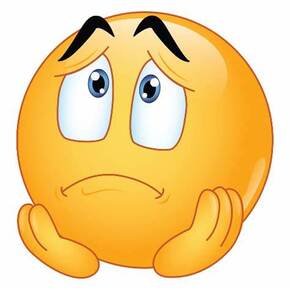 In last week’s blog we focused on some of the positives of being an Indie author, so it is only fair that we now look at some of the negatives. But we here at Selfishgenie are positive sorts of people, so we really want to turn the negatives into positives too. It isn’t always possible, but we have racked our brains and we think we have found a few ways of doing that. We’re not going to go all “turn that frown upside down” cliché on you. But we do want you to know that there is nothing about the negatives of being an Indie author that you should ever feel you can’t do something about. So, here we go with the negatives of being an Indie author. 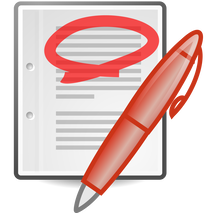 1. You have to edit your own work. Some people love editing, some people hate it. But it is an essential part of being an author. If you want your book to be the best version of itself that it can be, you are going to have to do some editing, because the first draft of any novel is never going to be perfect. The first step to editing your draft is to put it out to beta readers. Many Indie authors think this is the final step because they want approval for their finished product. It must therefore be quite demoralising when their beta readers tell them that the book still needs work. So, go to the beta readers first, get their feedback, fix what needs fixing, then go back to a different set of beta readers for a fresh perspective. The feedback should be less damning and more complimentary, but you can still expect some suggestions for improvement. Rinse and repeat until the beta readers have no more suggestions for improvement, or until you think the suggestions are no more than nit-picking. There is no point in putting a book out there and hoping it is good enough. This process provides a degree of certainty. If all else fails, you can find editors on-line and pay them to edit your book. Be very sure of what you are paying for, however. Particularly make sure you understand the difference between editing the text and editing the narrative.  2. You have to do your own formatting. True, but if you set up a template so that from the first word of your book it is already formatted correctly, you will save yourself a lot of time. You may want two formats, a draft version that’s double spaced for later editing, and a final version, but word processing packages allow for speedy conversion from one to the other. We encourage authors to compose in the final format, because we edit using word processors too, which means double spacing isn’t required. We even publish a formatting guide so that potential authors can impress us by showing that they have researched us and know what we are looking for from them. There really is no witchcraft to formatting:
These aren’t hard and fast rules but take a look at the books you love the most and see how they are formatted. Copy them and you won’t go far wrong. 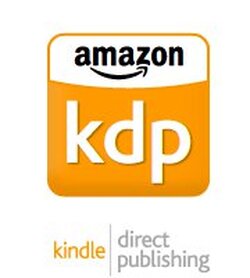 3. You have to upload your books onto self-publishing sites yourself. This can be time consuming the first time you have to do it, but after that you can upload an ebook and a paperback in less than an hour. Some sites are more difficult to work with than others, but if you do anything they don’t like they will tell you why, so you can correct it before publication. If you get the formatting right in the first place, the problems will be reduced. Covers are most tricky, especially for paperbacks, because they have to take into account the thickness of the book when it has been printed. Investing in a package such as Book Brush and learning how to use it is well worth the money and the time. 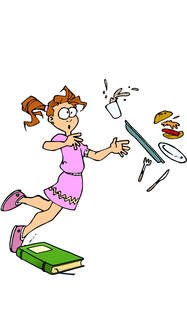 4. You have to market the book yourself. There can be no doubt that this is the hardest part of self-publishing, and it is also the part that Indie authors spend the least time and money on. Sorry, but if you think people are going to stumble across your book by accident, you are fooling yourself. If you think that “word of mouth” will sell your book, you are fooling yourself. If you think that plugging your book on social media will sell your book, you are fooling yourself. Yes, both word of mouth and social media have a part to play in book marketing, but it isn’t as big a part as some people make out. Book marketing requires knowledge of how to do it if it is going to work. Unless you want to spend money getting other people to do it, it is far better to spend money on learning to do it for yourself. Actually, you don’t have to spend money on learning. There are free on-line courses on marketing that will teach you the basics. But you have to invest the time and the effort if you want it to work. Investment in yourself is an investment that always pays back – so do it. But at some point you will have to pay for marketing services, especially advertising. We have posted several blogs on this subject and you can find them all in our archive. But the golden rule is caveat emptor – buyer beware. There are lots of “businesses” out there that promise a lot but deliver little. Look for recommendations from other authors and check their sales rankings - because they don't lie. That’s one of the best ways you can use social media when it comes to marketing.  5. Readers don’t take self-published authors seriously. Unfortunately, there is little we can do about that sort of prejudice. Also unfortunately, there are a lot of poorly written self-published books that would seem to confirm this bias (though not yours, obvs). There are a couple of things you can do to try to change the minds of readers when you encounter this bias. The first thing to do is to challenge this view. There are a limited number of agents and an even more limited number of publishers, so author supply outstrips publisher demand. Just because an author can’t find a publisher it doesn’t mean their book isn’t worthy. It just means there is no space for them at the table right now. The other thing you can do is to point out the growing list of bestselling self-published authors. We gave some names in last week’s blog, so you can scroll down and see them. Saying something like “How do you account for the success of L J Ross, who is self-published and has sold over 7 million books?” will leave the prejudiced person looking for a way out of the conversation. If they reply with “they got lucky” then start reeling off a few more names and asking if they all “got lucky”. Or maybe they sell so many books because they are real authors who tell stories that people want to read. I can’t promise that you will change a lot of minds, but it is only by challenging prejudices that we eventually eradicate them. If all else fails, offer them a free copy of your book so they judge you on merit instead of pre-judging you. 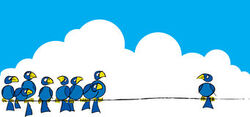 6. You feel so isolated and/or you feel like an imposter. Having a publisher comes with a support network that affirms your ability as a writer. And there is always someone available at the end of a telephone who understands what you are going through and is there with words or comfort. But just because you are self-published, it doesn’t mean you are alone. Join a writer’s group. Even if you live in an isolated community you can join virtually. Zoom has become a great boon when it comes to meeting other writers and discussing your problems with them – and being there for them to discuss their problems with you. Join on-line writers forums, for the same reason – but don’t try to use them to plug your books! I don’t recommend social media as your first port of call for support. While the vast majority of authors on it are supportive, it only needs one troll to start on you and it can ruin your day. Find the safe spaces and stick to them. But always remember – you are not alone. If the worst comes to the worst, you can always email us, even if you aren’t one of our authors. We support every Indie author, regardless. See our “contact” page for our email address. If you have enjoyed this blog, or found it informative, then make sure you don’t miss future editions. Just click on the button below to sign up for our newsletter. We’ll even send you a free ebook for doing so.
0 Comments
Leave a Reply. |
AuthorThis blog is compiled and curated by the Selfishgenie publishing team. Archives
June 2025
|
 RSS Feed
RSS Feed